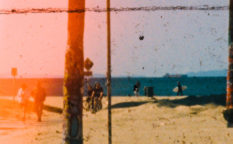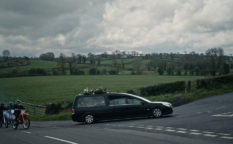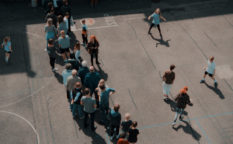Interview: Eydís Eir Brynju-Björnsdóttir, the director of Islandia (2018)
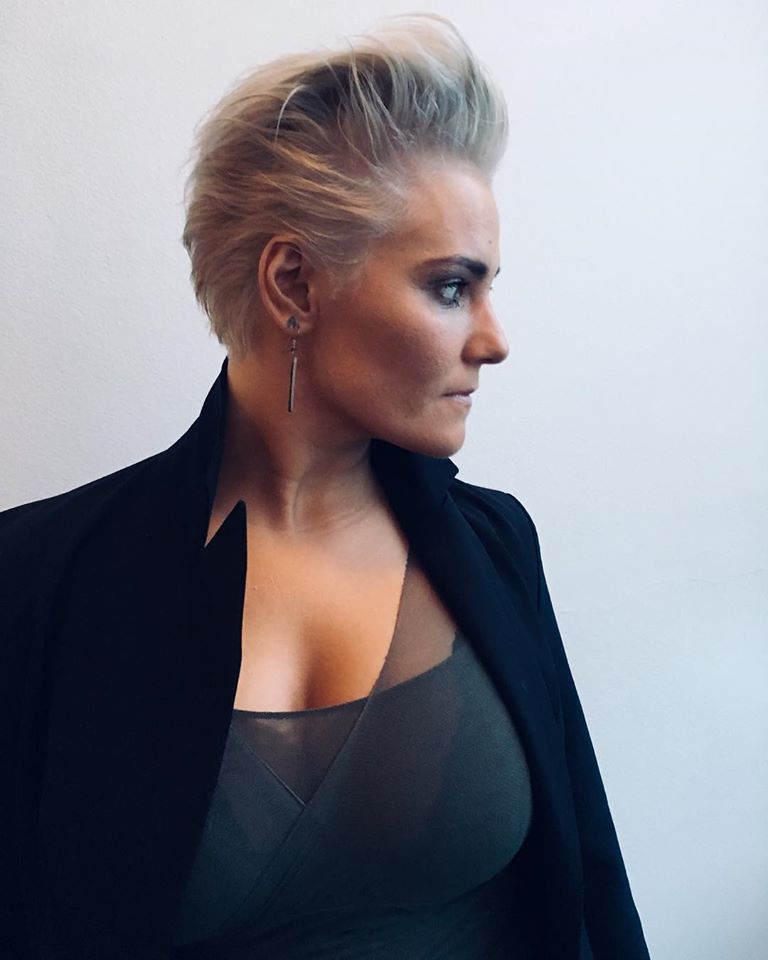
Eydís Eir Brynju-Björnsdóttir studied directing and script writing at the Icelandic Film School, and has gathered experience in film production. With her debut short film Islandia, a very personal take on her own traumatic experience, she steered controversy in her home country by openly addressing the sensitive topic of rape, and the thick wall of silence that she had to break through to give the voice to herself and many other victims.
We met Eydís Eir Brynju-Björnsdóttir at the RVK Feminist Film festival after the screening of her film, to discuss film making as a form of therapy.
Right at the end of the film, in closing credits, we see that it was dedicated to your mother. Why did you decide to give your character your mother’s name?
She had carried her story for 30 years and she didn’t tell me about it until I came back to Iceland. I went straight from the airport to the hospital where she briefly lost her eyesight due to PTSD. I had no idea what was happening to her and it’s only then she told me the whole story. Through my trauma she went through her own again, and she lost her eyesight.
She never spoke about it, and it was a horrible experience. She was kidnapped, and she thought she was going to die. She re-lived her experience through me. This burden was inside of her many years, just like in case of so many women of past generations who didn’t grow up in a society where they could speak up. There wasn’t such a thing as the #metoo movement. I sometimes talk about her and cry more than telling about my own experiences. When I am speaking about mine, I keep my face straight, but when I open about her trauma I immediately start crying. There are millions of women out there who never get to talk about their experiences, and they start losing their minds. I lost mine for a while, but I was privileged to be able to make this film, so I decided to dedicate it to my mother. She is kind of representing all the women who don’t have a voice. They are filled with shame. It’s like cancer eating you up from the inside. I got to go to the EMDR therapy, but many women never get a chance of getting a trauma therapy or even realizing what happened to them. I would have probably ended up in a mental institution if I didn’t go to that therapy. My mom is now trying to work through her hurt but when so much time passes, you are scarred for life. PTSD is frequently used as a term, carelessly even, but it can be very dangerous. Your mind doesn’t know what happened 20 years ago or today. The mind and body believe that what happens it happens in the moment, so they don’t know the difference. Its terrifying to re-live your trauma over and over again and if you don’t work on it, you might end up going blind while driving a car or something worse. It’s the reality of the abuse survivor.
Did this film help you to close that traumatic chapter of your life, and how was it like reviving this experience and put it into the script and later on in the audio-visual format?
Thankfully, I had worked through a lot of things, and I had a great support by Marzibil Saemundardóttir and Nanna Rúnarsdóttir, who is my best friend. There were scenes that I didn’t expect would be hard for me to film. I thought that the rape scene would be very difficult, but it strangely wasn’t, but when we filmed the medical examination, I simply couldn’t take it. I had to go out. Marzibil took over and a friend of mine had to hold me. Literally catch me. My body felt like paralyzed, and it was weird because I wasn’t aware of the impact that medical examination had on me. You can never know beforehand what will crush you innerly. I actually went to Turkey because I was running away from an abusive boyfriend, which is something I never really processed, and I also didn’t put it in the film. So, this film was like a big psychotherapy. I am kind of done with it, but sometimes I get angry or frustrated about how women are still treated in many countries. Even in western Europe, we are good on paper, but in real life violence still lurks. I have too many stories about that.
My film was shown in Jordan where women are being locked up if they experience violence “for their own protection”. There is a law there called “women’s protection law”. So, husbands stay home and continue with their lives and the survivors of domestic violence get imprisoned. It’s madness.
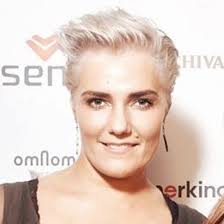
Was your story big in Iceland when it happened, back in 2014?
No, it wasn’t. When I returned home, the Ministry of Foreign Affairs had a duty of confidentiality. In case of sexual abuse, they are not allowed to speak to the media and give an official statement, and I didn’t want to express myself. Especially to the media. I needed to heal. But I didn’t. I was charged, not my rapist (who had raped before), and instead I was considered the criminal. Nobody knew about it, it was just like nothing ever happened. Since I didn’t speak about what had happened when I arrived, the police were watching my house and following me because I was deported back, and they immediately presumed that I was some kind of criminal. I was in agony, and not only because of this experience. My response to press charges in Turkey was because I had had enough with the previous violence against me, and I thought my case was obvious. Then I went to the psychotherapy, and started writing down my experience. All of it. Just a half of it made it in the short film, of course. Nobody would’ve believed me if I told it all in details. Life is stranger then film.
Have you met other women in the Turkish prison who were silenced?
I slept a lot, but when I woke up I started to focus on my environment, the other women, to escape my own pain. Talking with my hands, communicating in our own weird way about our experiences. I met women that nobody cared for and who were banished from their families or countries. I created characters and just bits of their stories are in the film. One of them, Amal (in the film), was trying to get to Amsterdam on a bus. She had a teaching job there. But she ended up on the wrong bus. There was also an Iranian woman named Parisa who was mentally ill as the consequence of her experience involving a tremendous pain. She lost her child, but she never could explain how exactly, because she didn’t speak English. The only thing I knew is that the American army was somehow involved in the tragedy. She got pregnant by an American soldier and was banished by her family. The rest is unclear. But since she experienced a lot of abuse, her mind went somewhere else. She was so beautiful and tragic. Nobody cared about her. There were also many other women with mental illnesses caused by abuse and neglect. My small sensitive self always thought that I couldn’t speak up because my experience was nothing compared to theirs, but in the end my story could be the key to unlock somebody else’s prison.
There is a little piece missing in the film. How did your lawyer manage to get you out of the prison?
Many little pieces are missing. But yes I was lucky because I knew someone in the government, and I was out relatively fast. They were very quick to contact the Icelandic Consul General of Denmark. He flew immediately over and found the whole procedure ridiculous. I was interrogated for maybe 24 hours, and the translator was very rude. I was sure that he wasn’t translating right. I felt that he wasn’t saying what I was saying. They were constantly laughing at me. I even saw my rapist and the hotel owner talking to the police and laughing. I had a Turkish woman working on the film who’s hiding behind an alias name, and she told me that there were 8-9 families who owned the town, all connected to each other. The rapist was the hotel owner’s nephew. Because the hotel owner knew the police officers, I was constantly asked the same questions, and I finally screamed that I needed a lawyer.
The Consul General was wondering why they didn’t take me to the hospital. They drove me in the middle of the night there. It was very confusing and it took them so much time to do everything. I was driven back and forth, from Alanya to Antalya with armed men. It’s an 2 hour drive. Even the council told me to talk to my dead cell phone so it would look like I was speaking to someone in the car. I started to repeat to myself in Icelandic. “they are gonna kill me, they are gonna kill me” right before I demanded my rights and I felt I had crossed a line; they held their guns and were mad at me for it. There were 281 women who were murdered by men that same year in Turkey. Brutally murdered. Amazing young intelligent, women. Fuck! Sometimes I’m still surprised of myself. Why did I choose to fight it this time? Why now? I was fed up with being a typical victim who had to live with the consequences of violence and abuse, while my tormentor continued living his life like nothing ever happened. If I would’ve been Turkish or some other ethnicity I would’ve probably be dead by now.
It’s very intense 20 minutes. What was the most difficult step in shooting Islandia?
It was very difficult to compress it. I had so much to say, so I did a bit of cutting. Even though some producers advised me to go for the long feature, I stack to the short format. I also got a grant from the European Union for the short film, and then the struggle to find someone to produce it. The thing changed when Marzibil came on bord. Even though I wanted to dive into other characters, there wasn’t any place for it. It was a great learning process for me. Now I know exactly what not to do. Still, the scenes from the first draft were those I was most happy with.

